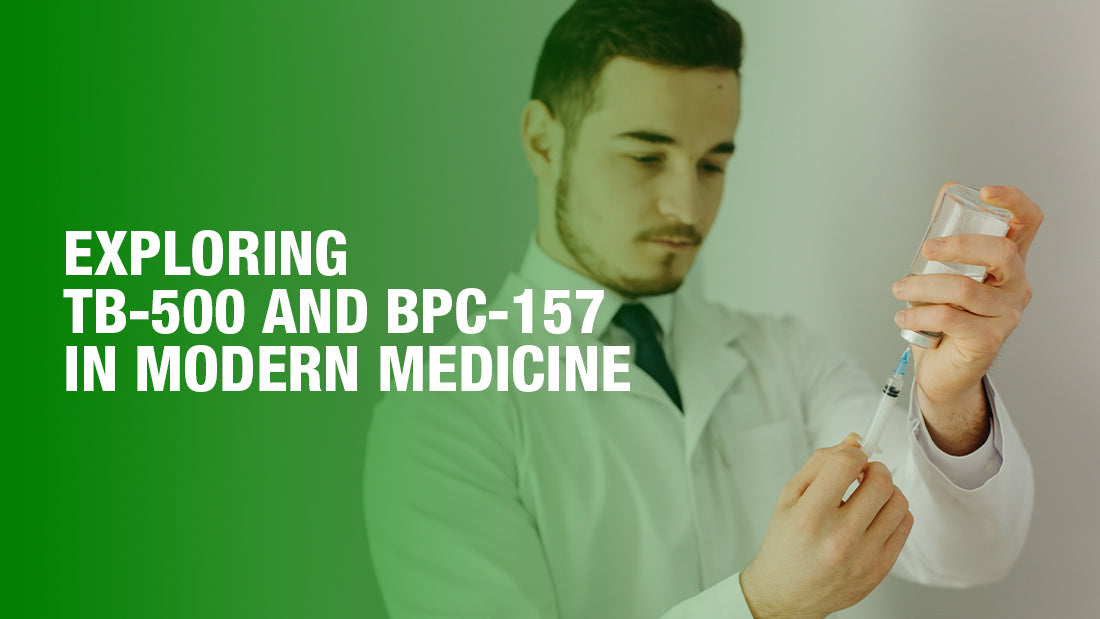Exploring TB-500 and BPC-157 in Modern Medicine
For decades, the standard approach to soft tissue injuries and chronic inflammation has been a familiar cycle: rest, physical therapy, anti-inflammatory medications, and often ultimately, surgery. But an emerging understanding of peptide therapies is offering new possibilities for those seeking alternatives to invasive procedures.
TB-500 and BPC-157 represent a groundbreaking approach to healing. Unlike traditional treatments that often mask symptoms or require extensive recovery time, these peptides work with your body's natural healing mechanisms. TB-500, a synthetic version of the naturally occurring Thymosin Beta-4, helps coordinate cellular repair and reduces inflammation at the source. BPC-157, derived from a protective stomach protein, demonstrates remarkable tissue-healing properties.
The advantages are compelling:
- Minimally invasive administration
- No lengthy recovery periods
- Targeted healing response
- Works with the body's natural processes
- Can be used alongside other treatments
Many athletes and active individuals are finding success using these peptides for:
- Tendon and ligament injuries
- Muscle tears
- Joint inflammation
- Post-workout recovery
- Chronic inflammatory conditions
The medical community's growing interest in peptide therapies reflects their potential as powerful healing tools. While they may not replace all surgical interventions, they offer a valuable option in the treatment toolkit, especially for those seeking to avoid invasive procedures.
The Evidence Speaks: Real-World Results
What makes TB-500 and BPC-157 particularly compelling is the growing body of user experiences across various applications. From professional athletes recovering from career-threatening injuries to weekend warriors healing stubborn tendonitis, the real-world results are hard to ignore.
Take, for example, the common rotator cuff injury. Traditional treatment often involves months of physical therapy, cortisone shots, and frequently ends in surgery. However, many users report significant healing within weeks of starting peptide therapy, avoiding the need for invasive procedures altogether.
The Science Behind the Success
The effectiveness of these peptides lies in their fundamental mechanisms:
TB-500 works by:
- Promoting formation of new blood vessels
- Increasing muscle cell migration
- Reducing inflammation systematically
- Supporting tissue flexibility and strength
BPC-157 complements these effects by:
- Accelerating wound healing
- Protecting gastrointestinal tissue
- Promoting collagen production
- Enhancing tendon and ligament repair
Beyond Physical Recovery
Perhaps most intriguingly, these peptides show promise beyond just physical recovery. Users report improved:
- Sleep quality
- Skin healing
- Digestive health
- Overall inflammation levels
- Recovery from exercise
The Cost-Benefit Analysis
When comparing the cost of peptide therapy to traditional medical interventions, the financial benefits become clear. A typical surgery can cost tens of thousands of dollars, require weeks or months off work, and involve extensive physical therapy. In contrast, a comprehensive peptide protocol often costs a fraction of this amount and allows people to maintain their daily activities while healing.
Looking Forward
As more healthcare practitioners become familiar with peptide therapies, we're likely to see them increasingly recommended as first-line treatments rather than last resorts. The future of regenerative medicine may well be one where invasive surgeries are reserved only for the most severe cases, with peptide therapies handling the bulk of soft tissue and inflammatory conditions.
The key is education - both for healthcare providers and patients. Understanding these options allows for more informed decisions about treatment paths. While the traditional medical establishment may be slow to embrace change, the results speak for themselves: peptide therapies like TB-500 and BPC-157 are offering real solutions for those seeking effective, less invasive treatment options.

